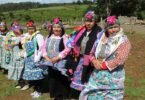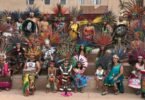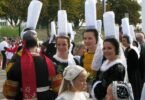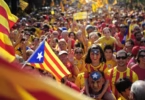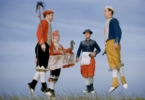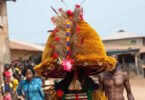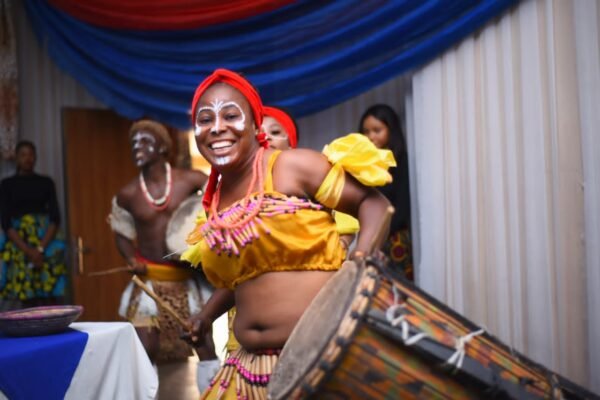
Igbo people are inclined to dance, as dance is part and parcel of their culture, being a powerful tool in their means of expression, historiography, and spirituality. The following paper is going to uncover how dance is more than entertainment for the Igbo people but how it represents a living way of their functioning as a community. As competitive dances or dances inspired by serious life events continue to be appealing, the steering meaning behind them has remained true to their semantic values as well as essentials of the Igbo society.
The Igbo people, known for their extraordinary dancing skills, their graceful technicality, the cultural importance of these performances, and the symbolic relationship of figures of movement loved by them in traditional and modern settings, will be discussed in this article to better understand the present state of this type of art.
The Role of Dance in Igbo Society
This is because dance plays a core significance in all Igbo communities in that it acts as a medium of passing information. It is believed to be related to music, rhythm, and description, as every dance is performed with instruments that include drums, udu, ogene flute, rattle, and vocal music.
Igbo dances serve various purposes, including:
- Spiritual Connection: Most dances are choreographed in honour of gods or goddesses, deceased relatives, or spirits.
- Community Bonding: Dance unites people in joyful celebration at festivals and during the collective, rite of passage, strengthening society.
- Cultural Preservation: Dance teaches the younger generations of the Igbo people about traditions, history, as well as helpful values.
- Expression of Identity: Various kinds of dances depict the various aspects of Igbo people, as evidenced by their creativity and self-esteem.
Prominent Igbo Dance Patterns and Their Meanings
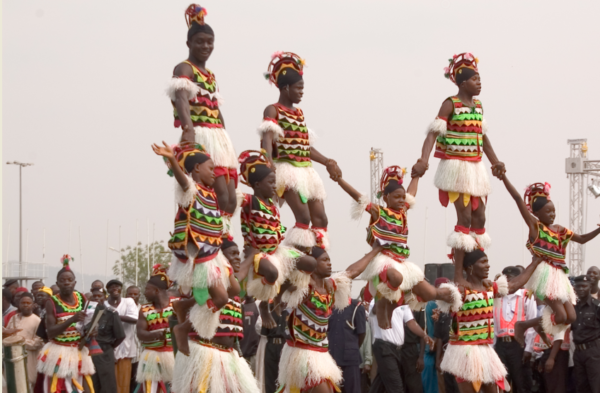
Each Igbo dance tells a story, using body movements, rhythm, and symbolic gestures to convey its purpose. Below are some iconic Igbo dances and their meanings:
The Atilogwu dance is one of the most popular and visually captivating dances in Igbo culture, known for its high-energy performances.
- Pattern: It features acrobatics, fast-paced footwork, and synchronized movements, often performed by agile youths.
- Meaning: The Atilogwu dance celebrates vitality, joy, and communal harmony. It is a display of the energy and spirit of youth.
- Occasions: Typically performed during festivals, competitions, and celebrations, it serves as a spectacle that unites and entertains audiences.
Nkwa Umu Agbogho (Maiden Dance)
This dance is performed by young Igbo women and is rich in symbolism and grace.
- Pattern: It involves rhythmic steps, gentle hand movements, and swaying of the hips, emphasizing femininity and poise.
- Meaning: The dance signifies purity, beauty, and the readiness of maidens for adulthood and marriage.
- Occasions: Often performed during rites of passage, marriage ceremonies, or community celebrations honoring womanhood.
Egwu Amala
A traditional dance performed primarily by women, Egwu Amala is a celebration of elegance and strength.
- Pattern: This dance features fluid, deliberate movements and intricate hand gestures.
- Meaning: It represents the nurturing role of women in Igbo society, as well as their resilience and grace.
- Occasions: Commonly performed during women’s gatherings, community celebrations, and marriage ceremonies.
Ikpirikpi Ogu (War Dance)
The Ikpirikpi Ogu dance is a dramatic and intense performance that honors the valor and strength of Igbo warriors.
- Pattern: Dancers engage in bold, aggressive movements, stomping their feet and wielding symbolic weapons like spears or machetes.
- Meaning: The dance reflects courage, preparedness for battle, and the celebration of victory.
- Occasions: Traditionally performed after successful battles, it is now showcased during cultural festivals and historical commemorations.
Egedege Dance
Known for its royal elegance, the Egedege dance is one of the most regal and dignified Igbo dances.
- Pattern: It features slow, deliberate steps and dramatic arm movements, often performed in elaborate costumes.
- Meaning: This dance symbolizes prestige, leadership, and the celebration of royalty.
- Occasions: It is performed to honor important guests, mark significant events, or celebrate leadership milestones.
Mmanwu Dance
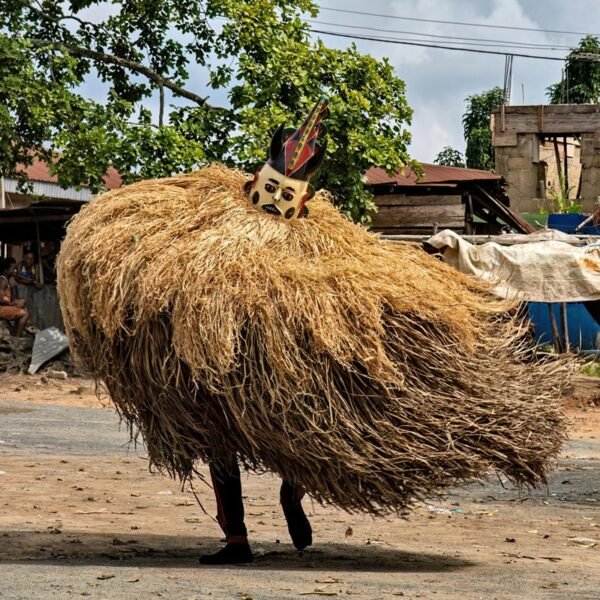
The Mmanwu dance is a masquerade performance that holds deep spiritual and cultural significance.
- Pattern: Masked dancers, representing various spirits and ancestors, perform intricate movements that vary based on the type of spirit being portrayed.
- Meaning: The dance connects the physical and spiritual realms, invoking blessings, guidance, or protection.
- Occasions: Performed during harvest festivals, funerals, and ceremonies dedicated to deities or ancestors.
Symbolism in Igbo Dance
Igbo dances are rich in symbolism, with each movement and gesture carrying specific meanings. These symbolic elements include:
- Hand Movements: Representing gratitude, supplication, or storytelling.
- Footwork: Reflecting strength, rhythm, or the connection to the earth.
- Waist Movements: Symbolizing fertility, grace, or joy.
- Group Synchronization: Demonstrating unity, cooperation, and communal harmony.
Costumes and Accessories in Igbo Dances
Costumes and accessories are integral to Igbo dance performances, enhancing their visual and cultural impact. Dancers often wear:
- Traditional Attire: Such as isi agu, wrappers, and beads, reflecting their community’s identity.
- Masks: Particularly in the Mmanwu dance, masks symbolize spiritual entities or ancestral spirits.
- Props: Items like spears, fans, or rattles that align with the dance’s theme or purpose.
These elements not only amplify the beauty of the performances but also reinforce the meanings behind the dances.
The Evolution of Igbo Dance
As earlier indicated most Igbo dances have remained cultural or traditional but they have not remained stagnant. This was accompanied by modemization of the shows, body dancing and music and dancing have been integrated in the traditional shows. Such fusion guarantees, that Igbo dances retain their significance and charm for the younger generation and yet do not lose their meaning.
Schools, cultural bodies, and festivals have also have also enriched the process of keeping Igbo dance heritage alive. These platforms include occasions at which the younger generation can not only observe but also acquire and execute such dance.
Conclusion
This paper focuses on the Igbo dance pattern and how it continues to embody an energetic practice of culture, history and togetherness among people. They narrate the true essence of the life of the Igbo people with a focus on, strength, happiness, belief and togetherness. Every dance, from the cheerful Atilogwu to the sacred Mmanwu dance, provides a window into Igbo culture and what they believe in.
Even to date, the Igbo are still dancing in order to preserve their culture, impart positive morale to community members as well as portray their traditions to the outside world. These plays are performed to the fore and for ever in Igbo land, and so the traditions of the land are continued through to future generations.
This must have made it easier for each dancer to stir up the spirit of community through the movements in every step, rhythm, and gesture of Igbo dances as way of telling us the freedom of the Mind and the elegance of human bodies.

